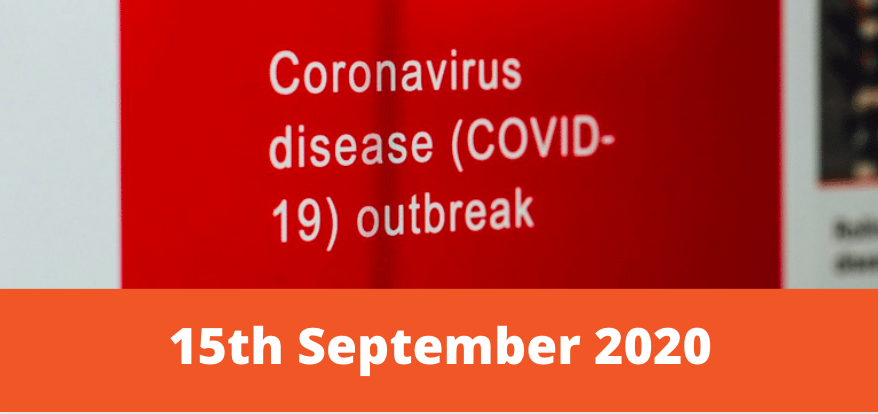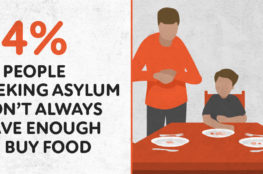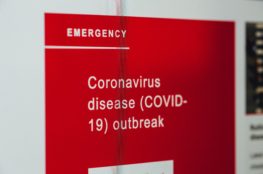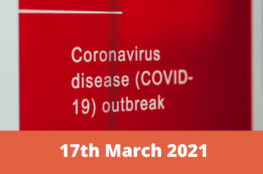Our fortnightly summary of ongoing advocacy initiatives, interesting surveys and research, government developments and useful resources. Contact us if you’d like to get this update directly into your inbox!
1. Ongoing advocacy initiatives
Lift the Ban petition reaches 150,000 signatures
The Lift the Ban petition has now reached an amazing 150,000 signatures! To mark the moment, the Lift the Ban Coalition has developed a GIF that you can download here to share through social media platforms (a draft tweet is below):
BIG news! 150,000 people have signed the petition to #LiftTheBan and give people seeking asylum the right to work. Join them by signing the petition today: https://act.refugee-action.org.uk/page/29178/petition/1?ea.tracking.id=4u2iqipp [insert GIF from here]
You can also retweet the GIF via Asylum Matters here or our campaign co-secretariat Refugee Action here, please do continue to sign and share the petition!
In other news, following the latest publication of the Immigration Stats that showed a dramatic increase in the proportion of people seeking asylum waiting more than 6 months for a decision on their claim (now at 72%), we spoke to BBC News to highlight the human impact of these delays and the ban on working.
The Conservative MP, Stuart Anderson, has also supported the right to work in an interview with local media (Star and Express) in which he also confirmed that he had spoken to the Home Secretary to call for “desperately needed changes” in the asylum system.
Last week, the House of Lords debated an amendment on right to work as part of the Immigration Bill. The campaign received support from a wide range of peers, and was covered in the Evening Standard.
Safe and Legal Routes
Over the past two weeks, crossings across the channel and the Government’s response have been the topic of further parliamentary debate and scrutiny. On 2nd September, an urgent question and debate was held in the House of Commons on channel crossings and received coverage in the Independent; Refugee Action have clipped some of the stand-out moments here.
The ongoing HASC inquiry into channel crossings, migration and asylum-seeking routes through the EU held its first oral evidence sessions on the 3rd September. Following the session, Free Movement analysed the numbers provided by the Home Office, which show that people crossing the channel are overwhelmingly refugees. A further evidence session was held on 9th September. The call for written evidence has now been extended until the 21st September.
JCWI’s write to your MP action and the City of Sanctuary Stand up for Sanctuary campaign remain live, while on 22nd September, IMIX are holding a panel discussion on what potential processes could help resolve the situation for people who want to claim asylum in the UK; you can register here.
Calls are increasing for the Government to urgently restart resettlement following the closure of the programme on 12th March. Refugee Action have launched a write to your MP action calling on the Government to reopen the resettlement programme and welcome at least 5000 refugees a year.
Following the devastating fire which destroyed the Moria camp on Lesbos last week, Safe Passage are calling on Boris Johnson to urgently resettle child refugees from the Greek islands – you can find the petition here. Lord Dubs has also urged the Government to rapidly assist in relocating the 407 unaccompanied refugee children affected by the Moria fire.
2. Research and reports
IPPR report ‘Access denied: The Human Impact of the Hostile Environment’
This report from the IPPR assesses the impacts of the hostile environment on individuals and communities. It finds that the hostile environment has contributed to forcing many people into destitution, has helped to foster racism and discrimination, and has erroneously affected people with the legal right to live and work in the UK.
Scottish Refugee Council report on the Impact of Covid-19
The Scottish Refugee Council have published a new report setting out the results of two surveys conducted in July 2020 to understand the impact of the Covid-19 pandemic on people seeking asylum in Scotland and the organisations supporting and working with them.
The survey of people seeking asylum found that loneliness, isolation and food poverty are key concerns:
- 40% of people in the asylum system reported poor or very poor mental health.
- 37% of people in the asylum system said they had contact with friends or relatives just a few times a month.
- 70% of respondents said that not having enough money to buy food was a serious or moderate problem.
You can find key findings of the report here and the full report here.
ODI report on public attitudes towards immigration
The Overseas Development Institute have released a new report ‘Public attitudes towards immigration and immigrants: what people think, why and how to influence them’. The report analyses polling data from around the world and explores both the contextual and individual drivers of public attitudes, finding that attitudes towards immigration are rooted in individuals’ values and worldview; while they can be shifted by external factors, they are relatively fixed and therefore any movement must be achieved through an understanding of and engagement with those values.
You can read about the background to the report and its key findings here and the full report here.
3. Inquiries and calls for evidence
Public Accounts Committee inquiry into the asylum accommodation and support transformation programme
Following the National Audit Office report on asylum accommodation and support, the Public Accounts Committee is conducting an inquiry into the asylum accommodation and support transformation programme. In early October the Committee will question senior Home Office officials on the services and accommodation provided to asylum seekers in the UK, and their attempts to improve it, with a focus on the value for money of the new contracts. The inquiry is open for evidence until 1st October 2020 and you can make submissions here.
ICIBI call for evidence for inspection of UKVI’s ‘front end services’
The Independent Chief Inspector of Borders is inviting anyone with knowledge or experience of UKVI’s ‘front end services’ to submit evidence for the forthcoming inspection. The deadline for submissions is 1st October 2020 and further details are here.
Justice Committee inquiry into the future of legal aid
The House of Commons Justice Committee has opened an inquiry into the future of legal aid. They are particularly keen to hear about the sustainability of the legal aid market, the impact of Covid-19 and the increasing reliance on digital technology to deliver legal advice and court services. The deadline is 19 October 2020 and further details are here.
Maternity Action call for evidence on Asylum Support Pregnancy Payment
Maternity Action are currently gathering experiences of getting the extra Home Office pregnancy payment of £3.00 which pregnant women in receipt of Home Office support (Section 95 and Section 4) are entitled to claim. Home Office policy states that “pregnant women who are supported – should make an application for additional payment in writing, signed by the applicant and include original, credible written confirmation of pregnancy such as form MAT B1, a letter from a Community Midwife or a letter from a GP”.
However, it seems that many of those applying will normally be expected to provide MAT B1 before payments are issued – which cannot normally be provided until the woman is around 20 weeks pregnant and, despite Home Office policy, other forms of pregnancy confirmation are not being accepted. As a result, many women on Home Office support and not getting this vital extra support earlier in their pregnancy.
Maternity Action would like to raise this issue with the Home Office and are keen to hear your experiences of applying for the extra payment in pregnancy and whether you have managed to get payments earlier by providing others forms of confirmation. Please get in touch with Gerry Hickey at gerryhickey[at]maternityaction.org.uk
4. Resources and what we’ve been reading …
- Doctors of the World and Thrive LDN have created guidance on ‘Six Ways to Improve Your Wellbeing’, available in 27 languages. You can access the guidance here.
- Migration Yorkshire’s Migrant Info Hub has a number of useful resources, including:
– Basic current Covid-19 guidance as an infographic in multiple languages
– How to do a Covid-19 test at home: video in various languages
– A translated guide about Covid-19 for separated children and young people: How can we reduce loneliness among migrant and ethnic minority people? A graphic illustration.
- Free Movement have pulled together a new immigration law timeline spanning 1905-2018. You can find the timeline here.
- Huffpost have published a useful piece looking at the truth behind seven common myths about people seeking asylum.
5. Events
Housing Justice are running a series of Covid-19 roadmap events focusing on night shelters; you can find more details here.




